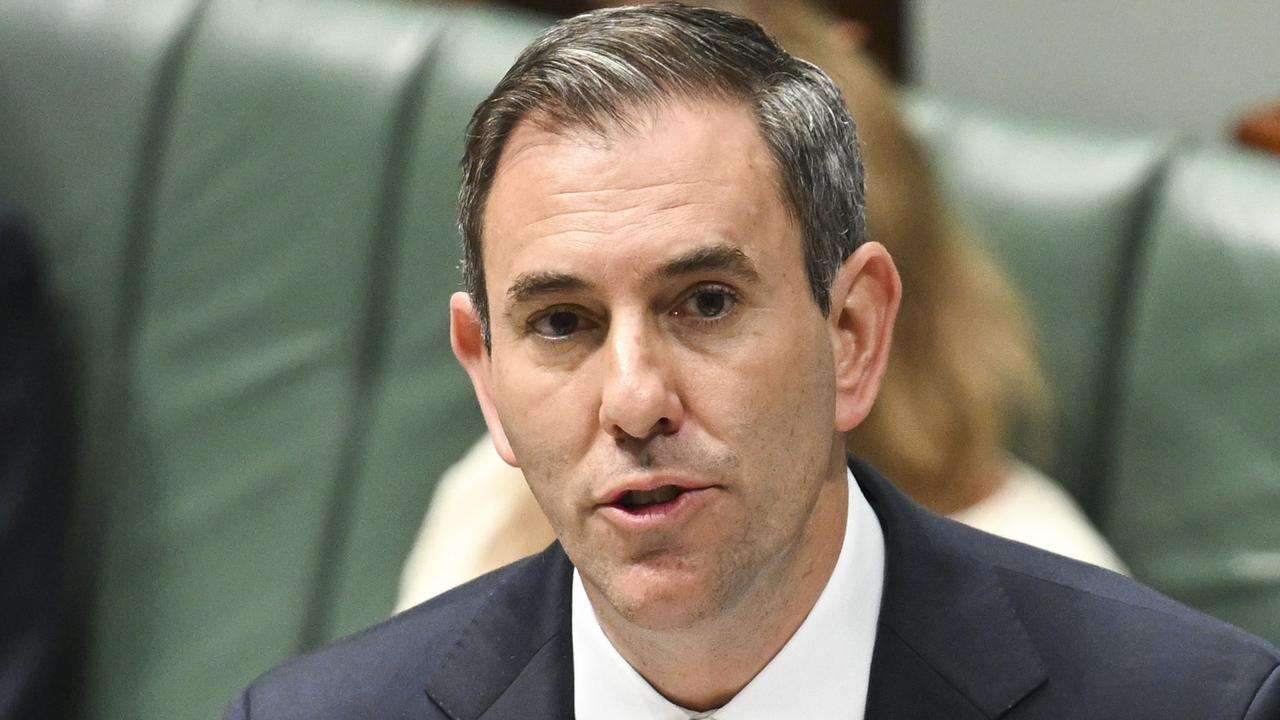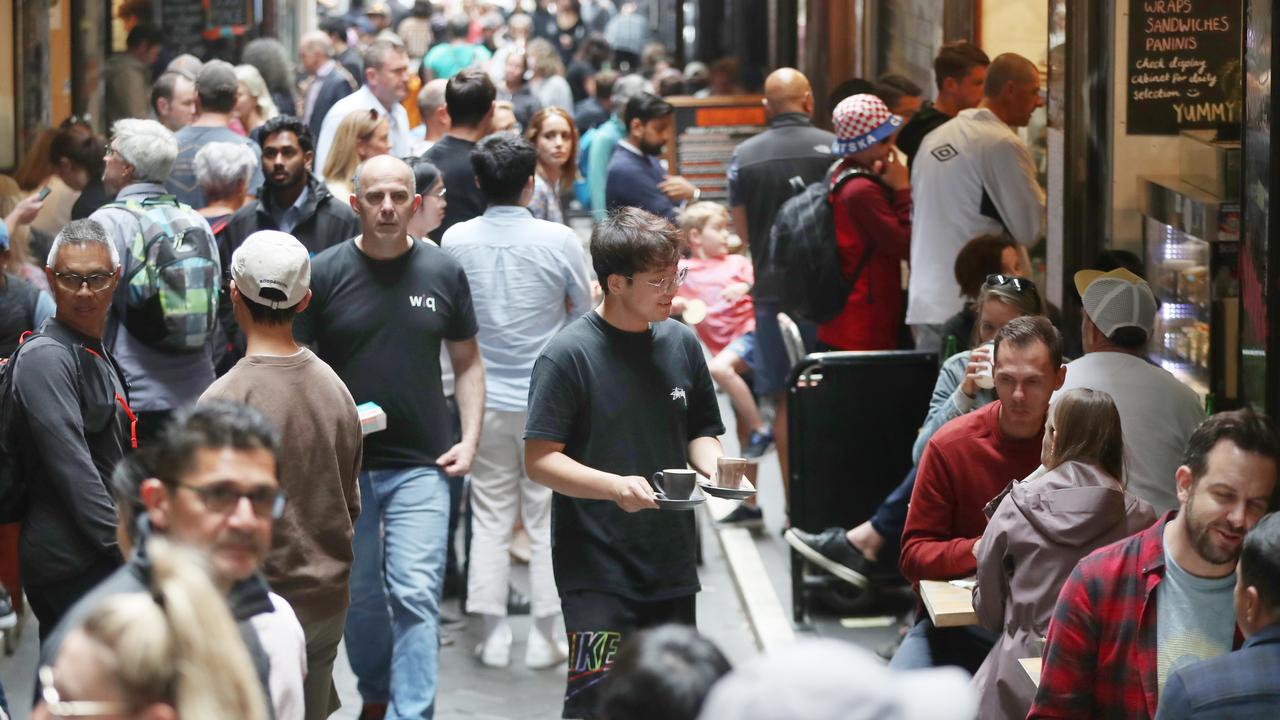Big changes coming to shopping
LONGER retail trading hours, cheaper goods and car rego fees reduced. These are just some of the big changes coming. But the pay-off could be costly.

LONGER trading hours, cheaper goods and less car rego fees — eventually — are on their way.
But the pay-off could be costly in other ways.
Consumers are set to benefit from a sweeping range of reforms committed to by Treasurer Scott Morrison yesterday in handing down the government’s official response to the Harper Review of competition policy.
But warnings have been sounded about a bid to open up the government-run human services sector — encompassing health, aged care, disability services and childcare — to private sector competition.
The government yesterday said it supported 44 of the review’s 56 recommendations, with the remaining 12 proposals to be followed up with state and territory governments.
“The Harper review sets out a new frontier for governments at all levels to lead a new phase of change that will deliver better services and more choices for Australians,” Mr Morrison told reporters in Canberra on Tuesday.
That in turn will help to support higher living standards.
Australian Competition and Consumer Commission chairman Rod Sims welcomed the response, saying the proposed reforms were the most significant of their kind in more than 20 years and once implemented should boost economic growth significantly.
Previous competition reforms of the 1990s and 2000s delivered efficiency improvements that boosted economic growth by 2.5 per cent.
Professor Ian Harper, who led the year-long review, said for the government to have accepted in full, in part and to remain open to all of recommendations is a “terrific outcome”.
However, Professor John Buchanan from the University of Sydney Business School was scathing of the government supporting the recommendation to deregulate human services.
He cited the “catastrophic” failure of the deregulation of the vocational education sector, which has seen for-profit education providers siphon off hundreds of millions of dollars in government loans.
“If this was implemented in health it would be nothing short of a catastrophe,” he said.
“The private sector is lining up to get into human services because it’s guaranteed profit. A lot of people made a lot of money out of vocational education over the past six years, and the country’s no more skilled as a result.”
Tom Godfrey, spokesman for consumer group Choice, echoed those concerns.
“User choice by itself may not be able to deliver what’s needed for some consumers, particularly those in rural areas and those with complex needs,” he said.
“Competition should be seen as a means to an end, not as an end in itself. Our competition policy as a whole should improve consumer welfare by supporting robust competition.”
Here’s what the changes will mean for you:
LONGER TRADING HOURS
The government says it will be encouraging state and territories to lift remaining restrictions on retail trading hours. For those that choose to retain restrictions, they should be strictly limited to Christmas Day, Good Friday and the morning of ANZAC Day.
The states and territories are at different stages of reform. The ACT and Northern Territory no longer regulate trading hours.
The government wants those that still do “to consider whether these restrictions are impeding competition and the ability of retailers to meet customer demand ... and whether they can be removed without imposing undue pressure on retailers to remain open when it is uneconomical to do so”.
SUPERMARKET PHARMACIES
The government “noted” the recommendation to remove restrictions on pharmacy ownership and location rules, which could pave the way for the supermarkets to open their own pharmacy outlets, but put off any move until at least 2017.
Assistant Treasurer Kelly O’Dwyer said there was no point in making changes now because the government had just signed new agreements with the Pharmacy Guild.
“This is certainly up for discussion and review when the next opportunity comes up,” Ms O’Dwyer told Sky News on Wednesday.
CHEAPER BOOKS
The government said it supported the removal of parallel import restrictions on books. Choice yesterday welcomed the response, but said it was disappointed the wider recommendation to remove restrictions on parallel imports was rejected.
Australian Booksellers Association chief executive Joel Becker has called for regulations to ensure there is no dumping of stock onto the Australian market, that local copyright is protected, and that counterfeit editions cannot be brought into the country.
“The ABA continues to be deeply concerned of the gross disparity in postal pricing that means that a book can be sent from London to Sydney cheaper than it can be sent from Manly to Penrith, or St Kilda to Broadmeadows,” he said.
NO MORE REGO FEES
The government has committed to working with the states and territories to shift the burden of road charges from indirect to direct charges, made possible by the use of new technologies such as eTags.
In other words, the goal is to reduce fees such as registration renewals and replace them with usage-based fees to fund road construction, maintenance and safety.
This could take some time, however. The government says it will “seek to accelerate work” with the states and territories on heavy vehicle road reform and “investigate the benefits, costs and potential next steps of options to introduce cost reflective road pricing for all vehicles”.
COMPARISON SITES
The government agrees with the Harper Review that governments should “work with industry, consumer groups and privacy experts to allow consumers to access information in an efficient format to improve informed consumer choice”.
Effectively, it wants organisations such as banks to give consumers better access to their own data, paving the way for UK-style MyData system which would enable comparison websites to offer highly personalised comparisons.
Choice policy and campaigns adviser Sarah Agar pointed to the UK site GoCompare as a good example.
“Consumers there have two options for logging on,” she said. “You can either access an ordinary comparison table, or they can logon using MyData and go through a different process giving them a very clear breakdown based on the way they use their current account, right down to the amount of dollars saved.”
AUSTRALIA TAX DISCOUNT
Choice has also welcomed the government’s endorsement of consumers’ rights to circumvent online barriers to access goods and services from overseas at “fair prices”.
“Where Australians are blocked from overseas sites or charged a higher price, they should be able to use services like VPNs to get around these blocks,” Mr Godfrey said.
However Choice’s Ms Agar said this was tempered by a lack of action plan accompanying the endorsement. “Unlike the open data recommendation where the government has tasked the Productivity Commission [to take it forward], there’s no plan to amend the Copyright Act, for example, to say consumers are entitled to access [overseas content].”



